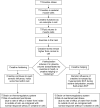Does creatine supplementation hinder exercise heat tolerance or hydration status? A systematic review with meta-analyses
- PMID: 19295968
- PMCID: PMC2657025
- DOI: 10.4085/1062-6050-44.2.215
Does creatine supplementation hinder exercise heat tolerance or hydration status? A systematic review with meta-analyses
Abstract
Objective: To critically assess original research addressing the effect of creatine supplementation on exercise heat tolerance and hydration status.
Data sources: We searched the electronic databases PubMed, Scopus, Web of Science, SPORTDiscus, and Rehabilitation & Physical Medicine, without date limitations, for the following key words: creatine, exercise, thermoregulation, dehydration, hyperthermia, heat tolerance, exertional heat illnesses, and renal function. Our goal was to identify randomized clinical trials investigating the effect of creatine supplementation on hydration status and thermoregulation. Citations from related articles also were identified and retrieved.
Data synthesis: Original research was reviewed using the Physiotherapy Evidence Database (PEDro) Scale. One author initially screened all articles. Fifteen of 95 articles examined the effects of creatine on thermoregulation or hydration status (or both). Two independent reviewers then reviewed these articles. Ten studies were selected on the basis of inclusion and exclusion criteria. The PEDro scores for the 10 studies ranged from 7 to 10 points (maximum possible score = 10 points).
Conclusions: No evidence supports the concept that creatine supplementation either hinders the body's ability to dissipate heat or negatively affects the athlete's body fluid balance. Controlled experimental trials of athletes exercising in the heat resulted in no adverse effects from creatine supplementation at recommended dosages.
Keywords: dehydration; exertional heat illness; hypohydration; renal function; thermoregulation.
Figures



Similar articles
-
Antioxidants for preventing and reducing muscle soreness after exercise.Cochrane Database Syst Rev. 2017 Dec 14;12(12):CD009789. doi: 10.1002/14651858.CD009789.pub2. Cochrane Database Syst Rev. 2017. PMID: 29238948 Free PMC article.
-
Interventions for promoting habitual exercise in people living with and beyond cancer.Cochrane Database Syst Rev. 2018 Sep 19;9(9):CD010192. doi: 10.1002/14651858.CD010192.pub3. Cochrane Database Syst Rev. 2018. PMID: 30229557 Free PMC article.
-
Early intervention (mobilization or active exercise) for critically ill adults in the intensive care unit.Cochrane Database Syst Rev. 2018 Mar 27;3(3):CD010754. doi: 10.1002/14651858.CD010754.pub2. Cochrane Database Syst Rev. 2018. PMID: 29582429 Free PMC article.
-
Systemic pharmacological treatments for chronic plaque psoriasis: a network meta-analysis.Cochrane Database Syst Rev. 2021 Apr 19;4(4):CD011535. doi: 10.1002/14651858.CD011535.pub4. Cochrane Database Syst Rev. 2021. Update in: Cochrane Database Syst Rev. 2022 May 23;5:CD011535. doi: 10.1002/14651858.CD011535.pub5. PMID: 33871055 Free PMC article. Updated.
-
Fluid supplementation for neonatal unconjugated hyperbilirubinaemia.Cochrane Database Syst Rev. 2017 Aug 1;8(8):CD011891. doi: 10.1002/14651858.CD011891.pub2. Cochrane Database Syst Rev. 2017. PMID: 28762235 Free PMC article.
Cited by
-
Fueling the Firefighter and Tactical Athlete with Creatine: A Narrative Review of a Key Nutrient for Public Safety.Nutrients. 2024 Sep 28;16(19):3285. doi: 10.3390/nu16193285. Nutrients. 2024. PMID: 39408252 Free PMC article. Review.
-
Creatine supplementation with specific view to exercise/sports performance: an update.J Int Soc Sports Nutr. 2012 Jul 20;9(1):33. doi: 10.1186/1550-2783-9-33. J Int Soc Sports Nutr. 2012. PMID: 22817979 Free PMC article.
-
Exertional heat stroke: nutritional considerations.Exp Physiol. 2022 Oct;107(10):1122-1135. doi: 10.1113/EP090149. Epub 2022 May 19. Exp Physiol. 2022. PMID: 35521757 Free PMC article. Review.
-
International Society of Sports Nutrition position stand: safety and efficacy of creatine supplementation in exercise, sport, and medicine.J Int Soc Sports Nutr. 2017 Jun 13;14:18. doi: 10.1186/s12970-017-0173-z. eCollection 2017. J Int Soc Sports Nutr. 2017. PMID: 28615996 Free PMC article. Review.
-
Safety of creatine supplementation: analysis of the prevalence of reported side effects in clinical trials and adverse event reports.J Int Soc Sports Nutr. 2025 Sep;22(sup1):2488937. doi: 10.1080/15502783.2025.2488937. Epub 2025 Apr 8. J Int Soc Sports Nutr. 2025. PMID: 40198156 Free PMC article.
References
-
- Terjung R.L, Clarkson P, Eichner E.R, et al. American College of Sports Medicine roundtable: the physiological and health effects of oral creatine supplementation. Med Sci Sports Exerc. 2000;32(3):706–717. - PubMed
-
- Naughton J. NCAA and federal agencies investigate the death of 3 college wrestlers. Chron Higher Educ. 2007. http://chronicle.com/data/articles.dir/eguid-44.dir/18eguide.htm. Published January 9, 1998. Accessed April 8,
-
- Bailes J.E, Cantu R.C, Day A.L. The neurosurgeon in sport: awareness of the risks of heatstroke and dietary supplements. Neurosurg Online. 2002;51:283–288. http://www.neurosurgery-online.com/pt/re/neurosurg/abstract.00006123-200.... Accessed July 11, 2007. - PubMed
-
- Field J, Plona K. Wrestler's death evokes grief, spurs training reform. Michigan Daily Online. 2007. http://www.michigandaily.com. Accessed April 6,
-
- Centers for Disease Control and Prevention (CDC) Hyperthermia and dehydration-related deaths associated with intentional rapid weight loss in three collegiate wrestlers North Carolina, Wisconsin, and Michigan, November–December 1997. MMWR Morb Mortal Wkly Rep. 1998;47(6):105–108. - PubMed

